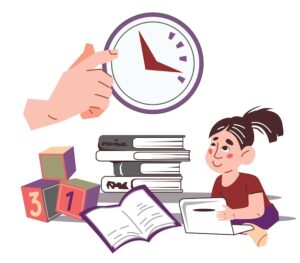Brain-Boosting Habits Every Student Should Follow
Brain-Boosting Habits Every Student Should Follow
Boost your memory, focus, and academic performance with these science-backed brain-boosting habits every student should follow. Learn how to study smarter, stay energized, and improve exam results!

Being a student isn’t just about attending classes or finishing assignments. Academic success depends heavily on how well your brain functions. Your memory, focus, and problem-solving skills play a huge role in learning effectively. Fortunately, adopting a few daily habits can supercharge your brain, helping you study smarter, retain more information, and stay energized throughout the day.
1. Prioritize Quality Sleep

Sleep is essential for brain health. During sleep, your brain consolidates memories and processes information learned during the day. Students who get 7–9 hours of quality sleep are more alert, focused, and better at problem-solving.
Tips for better sleep:
- Maintain a consistent sleep schedule.
- Avoid screens at least an hour before bed.
- Keep your sleeping environment dark and quiet.
Example: A student who sleeps consistently for 8 hours finds it easier to remember lecture notes and perform better on exams compared to pulling all-nighters.
2. Eat Brain-Boosting Foods

Nutrition plays a vital role in cognitive performance. Eating healthy foods improves concentration, memory, and energy levels.
Brain-boosting foods:
- Nuts: Healthy fats and antioxidants.
- Berries: Flavonoids improve memory.
- Whole grains: Provide steady energy.
- Dark chocolate (in moderation): Boosts alertness.
Example: A breakfast of oatmeal with berries and walnuts can kickstart your day with sustained energy and sharper focus.
3. Exercise Regularly

Physical activity improves blood flow to the brain, reduces stress, and enhances memory. Even a 20–30 minute walk, yoga session, or workout can boost cognitive performance.
Example: Taking a brisk walk before studying a difficult topic can increase focus and retention of the material.
4. Practice Mindfulness and Meditation

Mindfulness and meditation reduce stress and enhance concentration. Just 5–10 minutes a day of deep breathing or guided meditation can help your brain stay calm and sharp.
Example: Meditating for 10 minutes before an exam can reduce anxiety and improve recall.
5. Take Regular Study Breaks

Long study sessions without breaks can lead to mental fatigue. Techniques like the Pomodoro method (25 minutes study, 5 minutes break) help your brain process information efficiently.
Example: Stand up, stretch, or walk during breaks to recharge your mind. This prevents burnout and improves retention.
6. Stay Hydrated

Even mild dehydration reduces attention span, memory, and cognitive performance. Keep a water bottle handy and aim for 6–8 glasses daily.
Example: Drinking water during study sessions helps maintain focus and prevents mid-study fatigue.
7. Engage in Brain Games and Learning Challenges

Keeping your brain active outside traditional study routines strengthens neural connections. Puzzles, memory games, or learning a new skill can enhance problem-solving, creativity, and memory.
Example: Playing Sudoku or learning a new language stimulates your brain and keeps it sharp.
Conclusion
Adopting these brain-boosting habits can transform the way you study and learn. Start small focus on one habit at a time and gradually build them into your routine. Over time, you’ll notice improved focus, better memory, and higher academic performance.

Pro Tip: Combine habits for maximum effect sleep well, eat right, and exercise daily. Small consistent changes today can lead to big academic results tomorrow!









